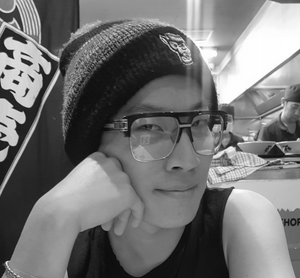I have a funny little idea.
What if instead of calling it “The Game of Life,” we call it “The Human Race?”
I know the term “human race” is usually meant to refer to humanity in general, but how often have you heard it being used in the context of describing life?
We talk about life in terms of “crawl before you walk, walk before you run, run before you fly.” It’s almost like we’re moving in a forward direction, just like how we move forward in a race.
But the thing about life is that it moves at different paces for everyone. In the analogy of looking at life like it’s a race, you could say people have different levels of cardiovascular ability.
Some people like myself tend to be sprinters. We like to go really fast, but we also tire out quickly.
Others are slower to get started, but they can last and run for longer.
And then there’s everyone in between and outside that simplified spectrum.
It’s like the story of the tortoise and the hare, and I believe the same story applies to how we move forward and progress in life.
And so in pursuit of trying to break down life as though it’s one long race for each and every single one of us human beings, with each of us having different levels of cardio under our belts (or rather, above our belts), I figured I’d make a simple 3-step guide on how to pace yourself in this race.
Step 1: Get started.
“‘Get started?’ Whaddya mean ‘get started?’ We’ve started crawling from the moment we’re born, right?”
That’s true. From the moment we enter this world, we automatically enter The Human Race.
As you navigate through life, you may find yourself window-shopping through all the different kinds of paths you could take. All the different projects, hobbies, jobs, and relationships you could start.
I find that a common hurdle plenty of people face is actually starting something or giving something a shot.
Have you ever hesitated with starting any kind of endeavor because you were worried about being judged? You didn’t know if your friends or family would approve. Whether it was something like launching your own business or starting a new hobby collecting rocks and minerals, maybe there was a part of you that was concerned about how people would perceive you differently, and it’s what held you back.
Or what about asking someone out? Maybe you fancy someone. Maybe you encountered a cute girl at a coffee shop or saw some handsome dude stocking shelves at a store. But you hesitated. The idea of rejection perturbed you. Perhaps you didn’t think you were good enough. You believed that the person of your interest was “out of your league.”
For one reason or another, every single one of us, at some point in our lives, struggles with starting something or going after something because of internal turmoil.
Don’t beat yourself up for feeling this way. It’s only human.
I’m not saying that taking the first step is easy. Especially the first several or even several hundred times you do it, it might not be easy.
But unfortunately, life wasn’t built to be a journey of pure sunshine and rainbows. It’s not a matter of ease, but rather a matter of necessity.
What I’ve found that helps me take that first step whenever I find myself struggling to do so is remembering that regret often settles in not because of what you did do, but rather because of what you didn’t do.
If you fail, at least you tried.
If you never try, you never know.
You’d be left in the dark thinking about:
What if?
You have to think about these moments in your life, these forks in the road, as opportunities that can pass you by for good, never to return again.
Your time is limited, as is the time for you to make your decision on whether or not to pursue that endeavor or person.
Get in the habit of getting started as much as you reasonably can so that when these moments present themselves to you, you are desensitized to what other people think. Unhindered by rejection.
When you aren’t afraid to take action, great things can happen.
Step 2: Go at a consistent pace, not at one so fast you’d burn out.
To my fellow sprinters, I’m afraid the long-distance running wins this one in the context of The Human Race.
I’ve personally dealt with burnout multiple times in my life because I pursued something too passionately, only to get sick of it shortly after, or for it to fall apart because I didn’t take things slowly. And I’m not the only one this happens too, either.
When I first started training martial arts, I zealously pursued this newfound hobby and trained quite a bit to begin with, but that passion ran out rather quickly after I poured my all into it. I didn’t pace myself. I sprinted into this world only to feel gassed out before I really thoroughly studied it.
I still do train, but it took a while for me to…catch my breath, let’s say.
I’ve also had the problem of pursuing someone romantically too eagerly, only for the flame of chemistry to burn out too quickly because I wanted things to happen too soon. When things move too fast, parts fall off, and the whole thing breaks down. When two people aren’t on the same page, they can’t read the same book.
I remember rushing into my first relationship, without fully taking the time to assess whether my ex was the right person for me or not. The breakup happened shortly after we were official when I realized it wouldn’t be fair for me (or her) to be in that relationship if I wasn’t fully devoted to it and her. What I should’ve done was take my time to think about if she was really the right person for me before committing. One should not take another’s heart so lightly.
If there’s anything I’ve learned from these experiences, it’s that going through your endeavors at a consistent and thorough pace pays off.
This absolutely applies to whenever you start a new project. No matter how passionate you are about the subject, if you exert yourself too much at the start and then try to keep that same pace going for the rest of your life, chances are you’ll burn out and then quit the project altogether.
Try doing this instead: keep a steady, more manageable pace from the get-go, and then pursue that endeavor for longer. This is also a lot more realistic, in terms of ability and expectations for yourself.
The people who stick with something consistently over the long run tend to get it right and succeed, such as one of my writing inspirations Tim Denning. Keep at your craft for a while and you’ll surprise yourself with how far you can go.
The same thing applies to your relationships. If you want them to be healthy, you need to take the time to vet the people in your life.
Make sure they’re the right people you’d want to be around.
Make sure that attractive girl or that snack of a guy is absolutely your type.
You only have so much attention to give to the people around you, and if you don’t appropriately evaluate who’s in your vicinity, you might give your time and energy to the wrong people.
It’s not about sprinting to the finish line. It’s not about nailing down and scoring some ephemeral result. It’s about how consistent can you be with your pace. The more you put in, the more you will get out.
Step 3: Keep an eye out for upgrades and improvements.
So now that you’ve gotten started and you’ve begun to be more consistent in your endeavors, what’s the last step to securing progress? How do you know that you’re consistently moving forward?
I need to make sure I explain this one carefully.
You already deserve a pat on the back for getting started and for sticking with something consistently.
But you also have to make sure that if you want progress after your progression, you have to be open-minded to potential changes and improvements.
Just because things work does not mean that they cannot be improved.
Things change. People change. Your interests change.
If you find that the friends you once had have turned into people you no longer can relate to, people whose relationship with you has turned toxic and draining, you have to have the ability to let them go and to seek out new people. Holding onto them does not serve you, but rather, it holds you back. It hinders your progress and takes away from it.
If you find that you’ve been doing something consistently but it hasn’t quite yielded the results you were looking for, it wouldn’t hurt to try changing it up a little to see if something else does a better job.
This isn’t to say to only try something for like a week and then give up on it if it doesn’t work out.
But if, for example, you set out to be a content creator and started off making videos and you’re not seeing the results you’d like after a while, maybe making videos isn’t your forte. You can still create content, but maybe you have to try a different avenue, like writing articles or making a podcast.
Of course, your interests can change too.
If you put enough effort into something and you’re positive after a while that it’s not for you, you’re welcome to find something else to do. You don’t have to keep on doing something you’ve come to hate.
I’m cautious with how I present this last step because it can sound like I’m going against what I said about consistency in Step 2.
You might be wondering: “How do I know if the stressful period I’m in right now with what I’m pursuing right now is something that I just have to push through and stay consistent with, as opposed to a sign that I should switch course entirely to something else?”
I wish I had a clear cut answer for you, but I don’t. This is just a matter of case-by-case, and everybody’s circumstances are different.
Rather than potentially overload you with anxiety and concern, Step 3 can really be boiled down to: keep an open mind.
When your mind starts to relax and get complacent and things become repetitive, things can become boring and dull.
When things become the same thing day-in and day-out, then progress starts to lull.
A closed and dormant mind does not seek or see progress.










Member discussion